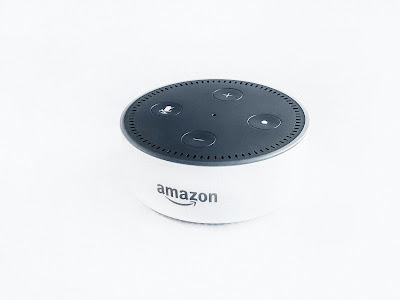This is how Amazon stays innovative
*This is not financial advice. All content should be considered opinionated. We are not responsible for any of your gains and losses. I am neither a licensed nor registered financial expert. Please see a financial advisor before making investment decisions.
Photo by Morning Brew on Unsplash
When many think of Amazon, they think of a variety of things:
- Compounder
- Innovator
- King of Retail
- Disruptor
But how did it get to become called those names? Well, it’s quite fascinating. Let's dive deeper and learn more.
Basically, Amazon has to try everything to find what works in this world. Even if those ideas might be old, but they shouldn’t be a reason to not fall them innovative because some things that worked and didn’t work in the past can work in the present day. Interestingly, many of Amazon’s ideas were ideas that were born in the past. The only difference is that Amazon made them work so well that we think of those ideas to be new and innovative.
In the novel, Au Bonheur des Dames by Émile Zola, one half of the story focused on the department store and the other half of the story focused on small business. The department store was selling its products at a loss. Because of it, the small business didn’t survive and the department store attracted most of the business.
What Jeff Bezos got from that book is an inspiration to expand into physical retail. Amazon wants to be the organization that gets you the product, not be the website. Human-less stores are one way that Amazon intends on moving to physical retail. Also, Amazon is also looking at making a physical store that only sells top-rated products.
Photo by Rahul Chakraborty on Unsplash
Amazon has over 50 million Alexa devices in people’s homes and currently, many don’t know what the strategic value of Alexa is. That experiment is currently happening. If you think about it, it’s better to own the experiment and get the option value than to sit on the business you already have and watch someone else try something new. Also, Amazon does many experiments on its logistics. You got drone delivery, warehouse robots, and humanness stores being large scale experiments. And there are smaller experiments that Amazon has and they have the potential to become something bigger. The 4-star stores are a small experiment that could expand into a huge chain if Amazon deems it worthy of investment.
Overall, Amazon is efficient at finding what you already know you want and shipping it to you, bad at suggesting things you don’t already know about, and terrible whenever a product needs something specific. But Amazon can't solve all of those issues mainly because the investment in solving those problems will be lower than their investments in other areas of their operations.
The big test for Amazon is this: Can Amazon help influence consumers on HOW to shop rather than convincing us to buy it?





Comments
Post a Comment